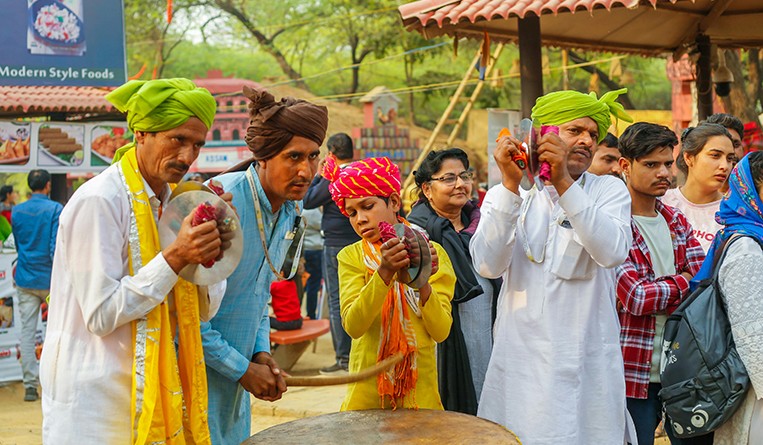Weak copyright compliance hounds India’s music publishing industry, according to report
07 March 2024

According to a report released by professional services company EY in December 2023, India’s music publishing industry is facing problems, with weak copyright compliance being the most significant one.

Bhavya Verma, Junior Associate, Khurana & Khurana, New Delhi
The report, titled “The music economy creator – The rise of music publishing in India,” is based on a survey of 500 music creators. It revealed that India’s music publishing revenues may have surged, from Rs3.4 billion(US$41 million)for 2019 to 2020 to Rs8.84 billionor (US$106.7 million) for 2022 to 2023. However, challenges such as copyright compliance, lack of awareness of music rights and lack of legal clarity hold the industry back, causing it to fall behind other countries in global revenue ranking.
The copyright compliance rate is at a low 1.2 percent. Bhavya Verma, junior associate at Khurana & Khurana in New Delhi, emphasized the need for the government to address tax issues related to musical works. She said consideration received for live performances should not be subject to service tax or Goods and Services Tax and royalties received for public performances of works through organizations like the Indian Performing Right Society should be carefully examined. “Overall, by addressing tax issues and providing incentives for copyright works, the government can effectively strengthen copyright compliance within the music industry and foster a thriving and sustainable creative ecosystem,” she said.
Furthermore, the government should also address the ambiguities and gaps in legislation. Section 31 D of the Copyrights Amendment Act 2012, which provides the legal framework and statutory licensing for broadcasting musical and literary works and sound recordings, aims to bring internet broadcasting and streaming services under the purview of the Indian Copyright Act, 1957. The grey area here is its applicability to online music streaming services.
“The government should amend the legislation to explicitly include internet broadcasting within the scope of statutory licensing, thereby providing clarity and ensuring equal treatment for all forms of broadcast,” said Verma, adding that proposed amendments regarding this in the Draft Copyright Amendment Rules, 2019 should be thoroughly evaluated. Doing this will ensure compliance with international treaties while protecting the rights of copyright owners.
Addressing the glaring disparity in royalty compensation in radio broadcasting will also help boost copyright compliance. Despite being a growth driver for India’s radio industry, remuneration for music creators remains disproportionately low.
Verma suggested several proposals to address the issue. These include facilitating transparent and equitable royalty negotiations between radio broadcasters and music companies, reassessing the current statutory royalty rate of 2 percent fixed by the copyright board (which is lower than prevailing market standards) and addressing revenue leakages stemming from opaque accounting practices. She believes that “by implementing these measures, the government can foster a more equitable and sustainable ecosystem for music creators, thereby bolstering copyright compliance within the industry and safeguarding the interests of all stakeholders involved.”
Likewise, the EY report revealed there is uncertainty regarding the need for separate royalties for publishing rights. “There is a lack of consensus on the justification for distinct payments, with numerous TV channels, radio stations and digital service providers questioning their legal obligation to pay separate royalties. The complexity of royalty determination further exacerbates the issue, highlighting the need for improved infrastructure and technological interventions,” explained Verma.
She also believes that the government should strengthen enforcement mechanisms and promote awareness and education on copyright laws and licensing requirements. She also suggested implementing special schemes to support artists in times of crisis, such as another pandemic. As an example, she cited the French Social Security Code Article L.382-1, the 1983 German scheme for artists and various Latin American labour codes.
“The Indian government can significantly contribute to enhancing copyright compliance in the music business and sustaining a creative landscape for years to come by making a concentrated effort to resolve these challenges,” said Verma.
- Espie Angelica A. de Leon






